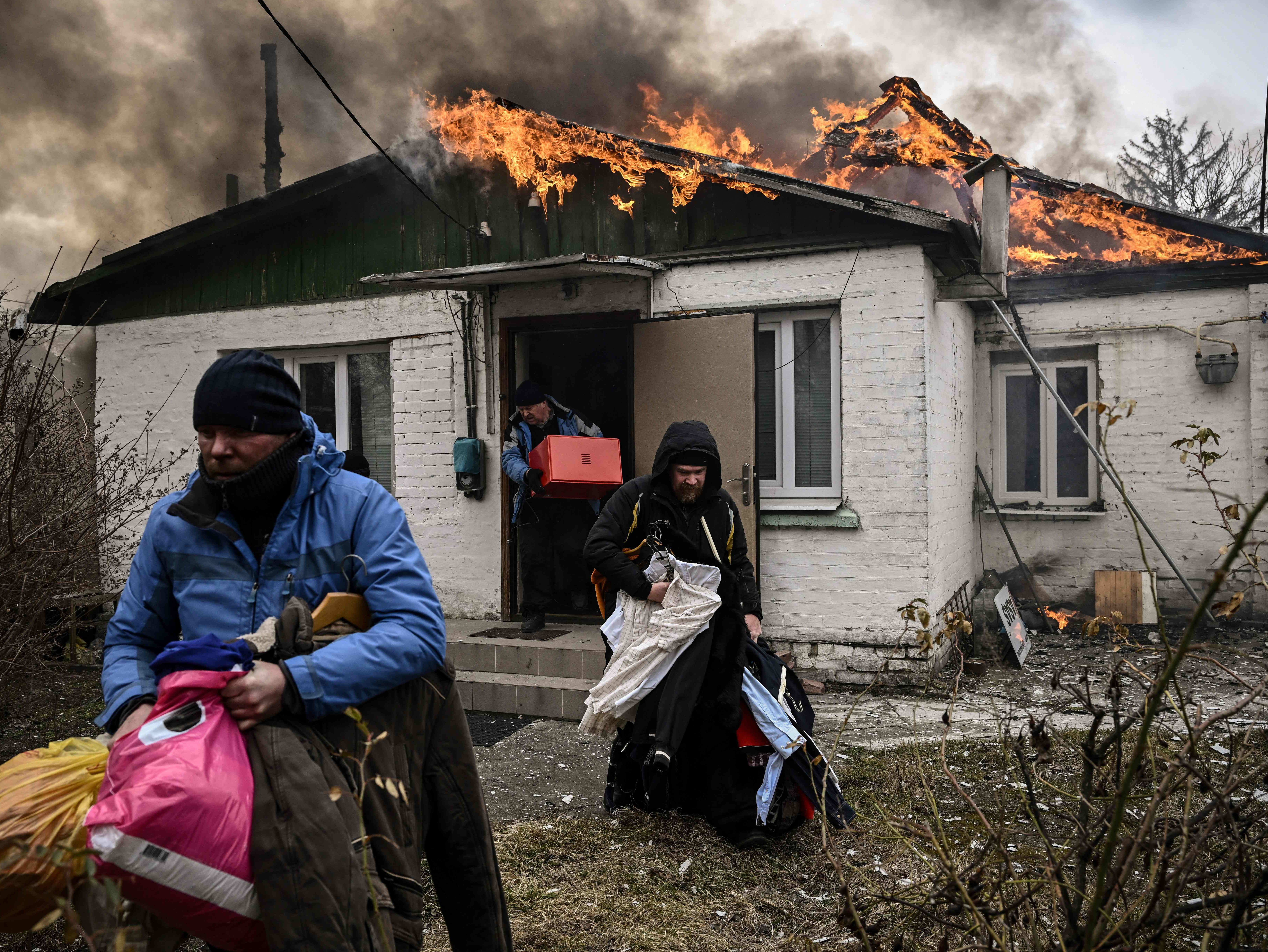What does the world’s response to Ukraine mean for the future?
Sweden and Switzerland understand that neutrality is no longer an option in an interconnected world. Qatar has stepped up to try to make up the shortfall in global energy markets. Even China has sounded an uncertain trumpet


“The world is too much with us,” Wordsworth wrote two centuries ago. He was lamenting the pace of commercial life and the loss of contact with nature. Today, history presses down with a relentless fury unimaginable in earlier times. The digital age, just a few decades old, gives us access to events around the world in real time.
It also allows those who wish to unleash evil to do so with greater speed and lethality. Smart weapons, including battlefield nuclear weapons, raise the prospect of focused destruction just short of the Mutually Assured Destruction that maintained a measure of stability from 1945 to today. Cyberattacks can shut down energy grids, financial markets and government networks in microseconds. Viruses spread and mutate from wet markets in China to every country in the world at the speed of jet travel.
In recent threats, we have moved from existential threats to democracy in the United States, from alpha to delta to omicron, to concentration camps incarcerating a million people Muslims in Xinjiang, to crackdowns in Kashmir locking down millions more, while humanitarian and human rights crises in Yemen and Egypt and Gaza and Libya and elsewhere continue unceasingly. And we can barely pay attention to less acute but no less pressing global crises like climate change.
And now Ukraine. A land war in Europe with one of the most powerful armies of the world invading a courageous citizen army outnumbered in men and material by major multiples. Putin’s blitzkrieg tactics have stalled — did he not learn the lessons of Napoleon and Hitler about the fearsome Eurasian winters? — but we should make no mistake. The early humiliation of the Russian Army will only lead to massive escalation.
Thankfully, there has been unity, consistency and energy in the world’s response. It is remarkable that Germany has come off the fence and pulled the plug on a crucial energy source in Nord Stream 2. It has not traded honor for gas. Qatar has stepped up to try to make up the shortfall in global energy markets. Saudi Arabia needs to do the same.
Hungary and Poland have been no beacons of liberty and its leaders have followed a Putin-esque model of illiberal democracy presided over by a single leader extinguishing pluralism and dissent. But they know their own neighborhoods, and have made a clear commitment to the west and to Ukrainian refugees. Sweden and Switzerland understand that neutrality is no longer an option in an interconnected world. Even China has sounded an uncertain trumpet, abstaining on a resolution at the UN Security Council, while making unconvincing statements suggesting that this crisis is the fault of anyone but the author of unprovoked aggression.
The global community has been far greater and unified than at any moment since 9/11. But that unity was fleeting and was squandered by the disastrous moral and political failures of the Bush administration. It is essential that international organizations, national leaders and NGO’s maintain their focus on Ukraine as well as on the surrounding countries of the old Soviet Empire and the Warsaw Pact, many of which have their security guaranteed by Article 5 of the NATO Treaty. Putin cannot call our bluff again as he did in 2013 in Syria and 2014 in Crimea.
But Putin’s Hitlerian incursion must prompt a wider strategic and moral accounting. Why Ukraine, but not Xinjiang or Rwanda or Syria or Myanmar? Ukraine is strategically crucial but we must think through whether we are valuing white European lives differently. Are we paying attention because there are large, politically important constituencies of Ukrainians and neighboring countries in the United States and elsewhere in Europe? What do we do when moral principles do not overlap with our geostrategic or political agenda?
The United States cannot be the world’s policeman, but we should still consider: What are the criteria for effective action in Ukraine and in other flashpoints around the world, today and in the months to come? Are sanctions enough to bring an autarkic country run by a leader seething with grievance to its knees? Will the provision of weapons come soon enough to make a difference or will they only increase the bloodshed? What can we do on a long-term basis to prevent the destruction wrought by leaders for life who often turn toward brutality and irrationality as their isolation grows and they confront their own mortality? Significantly, this final question is one that we as Americans now need to ask in our own country as well as in other places.
The Biden administration is negotiating the Ukrainian crisis skillfully, although at the moment it is not reflected in political support. Many Americans seem more interested in Critical Race Theory and gas prices than the fate of the post-war world — but it’s important we remain as globally engaged as never before.
Join our commenting forum
Join thought-provoking conversations, follow other Independent readers and see their replies
0Comments